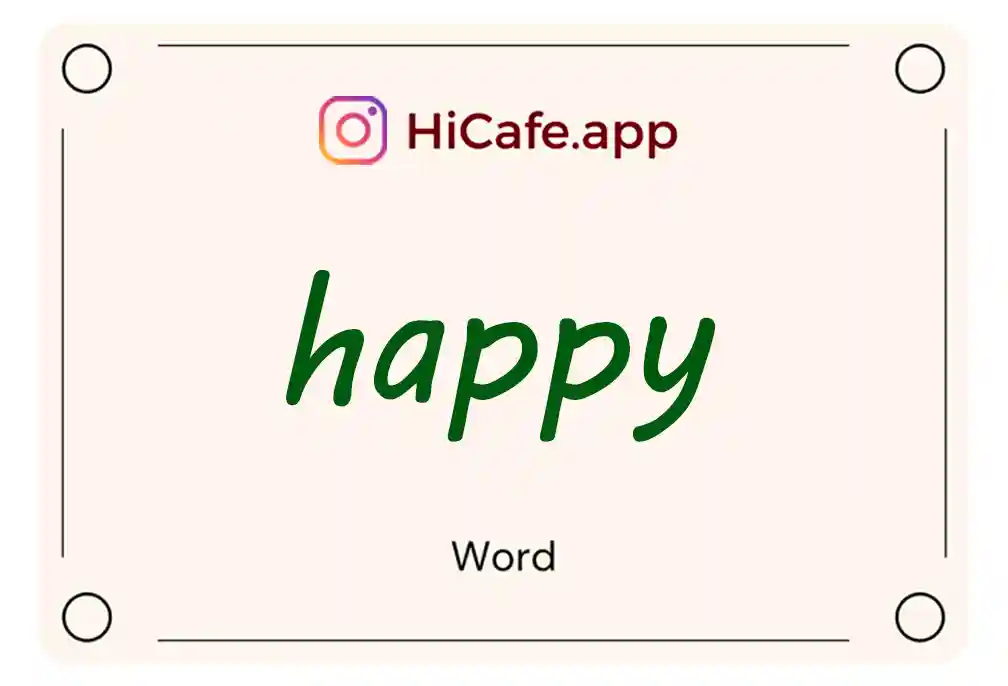Word of the Day: Happy
To be happy is to feel good or experience some sort of goodness. The word “happy” is a very basic vocabulary word in English, but you should pay close attention to how it is used:
Use “happy” with the verbs “be,” “feel,” or “seem.”
- Maria is happy.
- Joe feels happy.
- Maria and Joe are happy together.
- They seem happy together. (But we aren’t sure. That’s why “seem” is used.)
When using “happy” with the verb “make,” include an object after the verb:
- Her children make her happy.
- His work makes him feel happy.
- A win will make the team happy.
- A sunny day makes everyone happier.
- Problems at work are making me unhappy. (The opposite of “happy” is “unhappy.”)
Sometimes the word “happy” is followed by an infinitive:
- I’m happy to be here.
- I’m happy to help you.
- We’re happy to hear the good news.
- We’re happy to see that everyone is okay.
- The teacher is happy to meet you.
- The students are happy to learn new things.
You can also be happy for another person. In this case, you celebrate another person’s good fortune or success:
- I’m happy for you.
- We feel so happy for you.
- Everyone is happy for the newly married couple.
- When Charlene announced that she was pregnant, her coworkers all said that they were happy for her.
The prepositions “about” and “with” are also commonly used with “happy.”
- Tom is happy about his new boat.
- He’s happy with his new boat.
- Maria’s happy with her husband.
- She’s happy about living in Nebraska.
- The drivers are happy about the new freeway.
- They’re happy about all the time they are saving on the new freeway.
- We’re happy with our new furniture.
- We’re happy about getting the furniture on sale.
Use the word “happy” when greeting other people for holiday occasions:
- Happy New Year!
- Happy Easter!
- Happy Fourth of July!
- Happy Thanksgiving!
When mixed with a touch of sarcasm, the word “happy” may have the opposite meaning:
- This is all your fault. Are you happy now?
- I hope you’re happy.
- I hope you’re happy with yourself!
The word “happily” is an adverb:
- The students happily returned to school after their vacation.
- The volunteers happily pitched in to help fix the house of an elderly neighbor.
- We happily made a donation to the school.
The word “happiness” is a noun:
- The boy’s happiness could not be contained. (He was so happy he had a hard time controlling himself.)
- Latoya wants to share her happiness with other people.
- Happiness is being able to live in a world of peace.
Essential English Dictionary
Visit the Popular English Words Beginning with H page to see the list of all words starting with letter H. For seeing the HiCafe dictionary, visit the Popular English Words with Meaning page.



